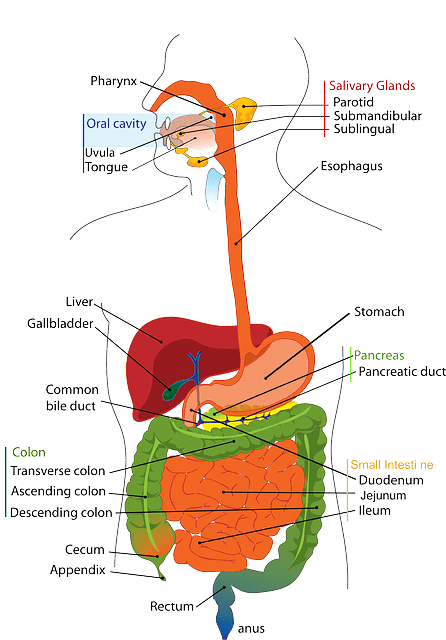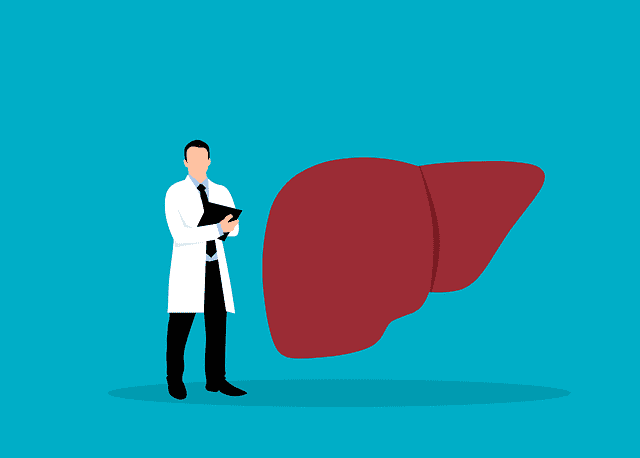What is Liver Disease?
The liver is the second largest organ in your body after the skin. It sits just below the rib cage on the right side and is about the size of a football. The liver separates nutrients and waste as they move through your digestive system. It also produces bile, a substance that removes toxins from your body and aids in digestion.
The term “liver disease” refers to any of several conditions that can affect and damage your liver. Over time, liver disease can cause cirrhosis or scarring. As more scar tissue replaces healthy liver tissue, the liver can no longer function properly. Left untreated, liver disease can lead to liver failure and liver cancer.
Overall, about 1 in 10 Americans around 30 million total has some type of liver disease. About 5.5 million people in the US have chronic liver disease or cirrhosis.
(Source)
Also Read: What are the 7 Major Sexually Transmitted Infections – STIs
Eight Common Types of Liver diseases:
Many conditions can affect your liver. Here is a list of the main ones.
1. Hepatitis
Hepatitis is defined as inflammation of the liver. When this inflammation is caused by a virus, it is referred to as viral hepatitis. Hepatitis can cause liver damage, making it harder for your liver to work as it should. Most types of viral hepatitis are contagious, but you can reduce your risk by getting vaccinated against types A and B and taking other preventive steps, including using a condom during sex and not sharing needles.
The five types of hepatitis include:
Hepatitis A: Hepatitis A is typically spread through contact with contaminated food or water. Symptoms may clear up without treatment, but recovery may take several weeks.
Hepatitis B: This type of viral hepatitis can be short-term or chronic. It is spread through body fluids such as blood and semen. While hepatitis B is treatable, there is no cure. Early treatment is key to avoiding complications, so it’s best to get regular checkups if you’re at risk.
Hepatitis C: It is often spread through contact with blood from someone with hepatitis C. Although it often causes no symptoms in the early stages, it can lead to permanent liver damage in the later stages.
Hepatitis D: This is a serious form of hepatitis that only develops in people with hepatitis B – it cannot be contracted on its own.
Hepatitis E: Hepatitis E is usually caused by drinking contaminated water. It generally resolves itself within a few weeks without any lasting complications. (Source)
Also Read: Now Know about Hepatitis E: Types, Causes, Risk Factors, Diagnosis and Treatment
2. Fatty liver disease
There are two types of fatty liver disease yet, these two types can occur separately or overlap:
- Alcoholic fatty liver, which is caused by heavy alcohol consumption.
- Non-alcoholic fatty liver disease, is caused by other factors that experts are still trying to understand.
Without treatment, both types of fatty liver can cause liver damage, leading to cirrhosis and liver failure. Diet and other lifestyle changes can often improve symptoms and reduce the risk of complications.

3. Autoimmune conditions
Autoimmune conditions involve your immune system mistakenly attacking healthy cells in your body. Autoimmune conditions involve your immune system attacking cells in the liver, including:
Autoimmune hepatitis:
This condition causes your immune system to attack your liver, leading to inflammation. Without treatment, it can lead to cirrhosis and liver failure.
Primary biliary cirrhosis (PBC):
This is caused by damage to the bile ducts in your liver, causing bile to build up. PBC can eventually lead to cirrhosis and liver failure.
Primary sclerosing cholangitis:
This inflammatory condition causes gradual damage to your bile ducts. They eventually become blocked, causing bile to build up in your liver. This can lead to cirrhosis or liver failure.
4. Genetic conditions
Several genetic conditions that you inherit from one of your parents can also affect your liver:
- Hemochromatosis causes your body to store more iron than it needs. This iron stays in your organs, including your liver. This can lead to damage over a long period of time if not managed.
- Wilson’s disease causes your liver to absorb copper instead of releasing it into the bile ducts
- Alpha-1 antitrypsin deficiency occurs when your liver cannot produce enough alpha-1 antitrypsin, a protein that helps prevent enzymes from breaking down throughout the body.
5. Cancer
Liver cancer first develops in your liver. If cancer starts elsewhere in the body but spreads to the liver, it is called secondary liver cancer. The most common type of liver cancer is hepatocellular carcinoma. It tends to develop as several small spots of cancer in your liver, although it can also start as a single tumor. Complications of other liver diseases, especially those that are not treated, can contribute to the development of liver cancer.
Also Read: Liver Cancer: Symptoms, Causes, Risk Factors, Diagnosis, Prevention, Facts
6. Drug-induced liver disease:
As seen in a 2019 study, it is possible to damage your liver from overexposure to certain medications and supplements. Many times this damage can be reversed once you stop taking the drug. But if it continues, the damage can become chronic.
7. Cirrhosis:
Cirrhosis refers to scarring that results from liver disease and other causes of liver damage, such as alcohol use disorder. Cystic fibrosis and syphilis can also lead to liver damage and eventually cirrhosis – although these two causes are much less common.
Your liver can regenerate in response to damage, but this process usually leads to the development of scar tissue. The more scar tissue that develops, the harder it is for your liver to function properly. It can lead to further complications and become life-threatening.
8. Liver failure:
Chronic liver failure usually occurs when a significant portion of your liver is damaged and cannot function properly. In general, liver failure related to liver disease and cirrhosis happens slowly. You may not have any symptoms at first. But over time, you may start to notice jaundice, diarrhea, confusion, fatigue and weakness, and nausea.
It is a serious condition that requires constant treatment. Acute liver failure, on the other hand, occurs suddenly, often in response to an overdose or poisoning.
Treatment for liver disease depends on the type of liver disease you have and how far it has progressed. It is best advised to see a doctor or medical professional as soon as possible.
Also Read: What is Bacterial Vaginosis? How it is caused; its symptoms and treatment





